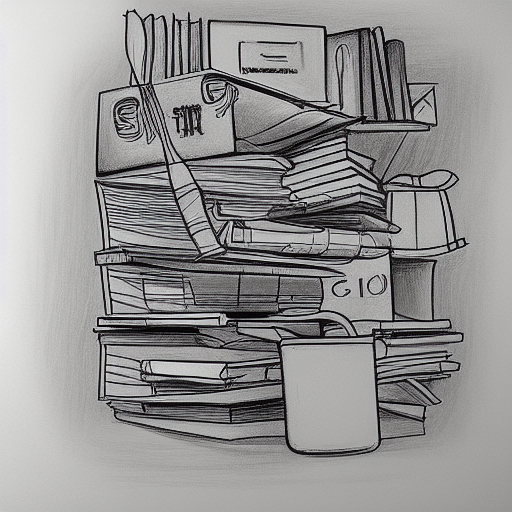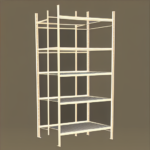Writing everything down
One of the best ways to be organized is to write everything down. If you are going to rely on your memory to keep track of things, then you’re only adding to your stress and wasting your time. Write down the information that is important to you and designate one place to keep it. When you’re not organized, you’re more likely to forget things, which could mean missing important work deadlines or family events. This can also affect your personal relationships.
Keeping a clean workspace
One of the best ways to stay organized is to keep your workspace clean and clutter-free. You can do this by putting everything in the proper place and using color-coded labels. Keeping things in their proper place also minimizes the risk of losing important documents or files. You can also hide electrical wires, which can also make your workspace look neater.
Keeping a clean workspace will make it easier for you to focus on your work. It will also improve your mindset. Being surrounded by clutter can reduce your productivity and affect your performance. In fact, 77% of Americans report that their productivity suffers when their workspaces are cluttered. In addition to that, having a clean workspace gives you a professional image. Customers will judge your work space based on how organized it is.
You’ll be more productive if you can easily find the items you need. A clean desk also makes it easier to get to work. Keeping a clean workspace will also prevent you from accumulating more garbage. It is also helpful to keep a trash can near your workspace.
Keeping track of deadlines
Having a timeline is a great way to stay organized and aware of your commitments. It also helps you track your progress. Whether you’re working on a personal project or a work project, setting deadlines is a key aspect of staying organized.
It is important to note the details of deadlines, such as who you need to send your final work to, the format of that work, and the date and time it is due. You may also want to factor in time zones to ensure that you’re on track for the deadline. It’s important to note deadlines because interruptions can ruin your productivity and steal valuable time. Common interruptions can include emails, phone calls, and chatting with co-workers. Shared printers can also cause constant traffic.
Having a to-do list will help you get things done faster and more efficiently. Having a written list of tasks is also a great way to stay organized. It’s easy to forget what you need to do until it’s too late.
Setting goals
Setting goals is an effective way to keep yourself on track. You should make sure that your goals are relevant to the direction you want your life to take. You should also have a timeline for when you need to reach them. By having a deadline, you will feel more motivated to continue on with your goals.
Setting goals will help you determine which projects are finished and which aren’t. It will also help you avoid burnout and make your work more meaningful. It also increases employee satisfaction and retention rates. When employees have clear goals and feel appreciated, they are more likely to stay. As a result, you will spend less money on recruiting and training new employees.
After you’ve set some short-term goals, you can set long-term ones. Once you reach these goals, review them frequently to see how you’re doing. You may want to revisit them every day or even every week. This way, you can recognize your progress more often. A daily or weekly review will help you stay motivated.
Keeping a clean environment
One of the best ways to stay organized is to keep your work environment clean. Not only is it healthy for you, but it can also make you more efficient. When you work in a clean environment, you won’t have to worry about germs. You’ll be able to focus on your work and not have to worry about getting sick.
A clean environment can boost your mood and increase your concentration. A clean workspace will also give you more time to think and complete tasks. When you’re working with a messy environment, you’ll spend more time looking for things. You’ll also spend less time cleaning.
Clean workspaces are healthier for you and your co-workers. Having a clean office will also increase your employees’ productivity. A neat office will give your clients the impression that you’re organized. This will also make your employees feel more comfortable and increase your team’s overall morale. Furthermore, a clean office will prevent health risks such as germs and workplace accidents like bumping into objects or tripping over hanging cables.
Decluttering
The best way to declutter is to be honest with yourself about what you really need. Start by evaluating every item you own. Ask yourself if you use it or if it adds value to your life. Then, put the item in the appropriate put-away bin or storage area. You can also sell or donate the items you no longer need.
When decluttering, try to finish smaller projects as you go. For example, if you have a pile of paper that you want to sort through, complete those smaller projects first. Don’t start a large project and get sidetracked. Always work to complete a task in phases. If you are unsure of how long something will take, give yourself a deadline. This way, you won’t get discouraged if you have to work on it part-time.
Make the process fun by challenging yourself. For example, you can make a game out of it by taking on the 12-12-12 Challenge. In this game, you have to declutter 12 items in each room. Then, you have to decide which ones to donate or throw away. You can also compete against your friends.
Using a checklist
One of the best ways to stay organized is to use a checklist. Not only does it keep track of what needs to be done but it also helps you focus when you’re distracted. When you use a checklist, you can check off items as you complete them. You can also use them to prioritize your tasks.
Another benefit of using a checklist is that it can help you establish new habits. Creating a checklist for your fitness routine means that you’ll know when to exercise, and what you need to do next. You’ll get the sense of accomplishment every time you cross a task off your list.
Using a checklist also reduces stress. When you’re stressed and worry about the future, it’s hard to stay focused. Using a checklist reduces that stress by giving you less to worry about. You’ll feel accomplished when you can cross off your tasks and know exactly where you’re headed.
Checklists also improve teamwork and collaboration. By setting up a checklist for each task, everyone involved can stay on task and avoid missing any important steps. Checklists can even help you delegate tasks and track progress.












